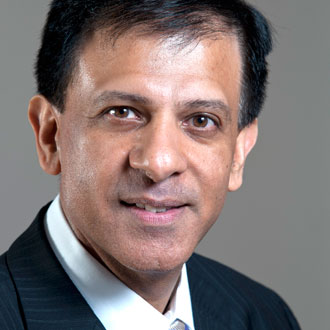2. Dr Chaand Nagpaul

Amid the gloom of an increasingly desperate year for general practice, Dr Chaand Nagpaul has made headway as chair of the GPC.
He has brought to the role a calmer, more intelligent style and managed to re-establish dialogue with Government after negotiations had completely broke down the year before.
Dr Nagpaul played his hand well in contract negotiations this year, reversing some of the changes that had been imposed in the previous year’s contract in England and injecting a modicum of sense into the QOF, with 40% of points removed and most pumped in to boost the global sum.
He also managed to contain some of the wilder suggestions from the health secretary that GPs may have to take some responsibility for out-of-hours care, by largely making the ‘named GP’ role a repackaging of what practices do already and allowing the health secretary room wriggle room to claim the ‘return of the family doctor’.
But the new contract has not lived up to Dr Nagpaul’s claim that it would ‘significantly reduce bureaucracy, box ticking and chasing targets’ and it has failed to ease the crisis in the profession.
The monstrous unplanned admissions DES is currently generating mountains of paperwork as practices plough through care plans for 2% of their practice list and the introduction of the friends and family test and new ‘Ofsted-style’ CQC ratings look to increase, rather than decrease, the bureaucratic burden on practices.
Also, the MPIG phase-out has continued as planned, albeit with some concessions recently. PMS practices face potentially ruinous funding reviews, and the real slap in the face was the puny 0.28% funding uplift for practices in England from April.
But the GPC has begun to highlight the current crisis in general practice through its ‘Your GP Cares’ campaign. Although not quite as successful as the RCGP equivalent in generating headlines, it has, nevertheless, successfully managed to highlight the dangerously low morale of the profession with surveys that show 57% of GPs are considering early retirement.
Our panel pointed to his ‘quiet determination’ to get the message out about the crisis in general practice. Good at delegating, his style invites inclusiveness, and leads with ‘dignity and common sense’, they added.
Our panel also welcomed his ability to ‘develop relationships’ and to ‘find solutions rather than confrontations’.
For his part he says it is ‘an absolute honour and privilege to represent the true unsung heroes in the NHS – everyday grassroots GPs’. As he points out, Dr Nagpaul has worked to strengthen communication between GPC and working GPs through a regular e-newsletter, more regional meetings and several surveys.
He adds the letters and emails he receives from dedicated GPs unable to cope any longer are ‘heart-breaking’. But the North London GP clearly wouldn’t have done anything else, even if he secretly harbours dreams of being a jazz musician.
It would seem so far so good, but with much to be done to secure general practice the resources and fair deal it deserves, let’s hope his collaborative yet strongly persuasive approach is the right one.
Related links
GP leaders launch major policy drive over premises ‘live crisis’
Dr Chaand Nagpaul: ‘The goodwill of GPs is being exploited’
Dr Chaand Nagpaul: ‘General practice is not just in crisis; it is imploding’
Pulse July survey
Take our July 2025 survey to potentially win £1.000 worth of tokens












